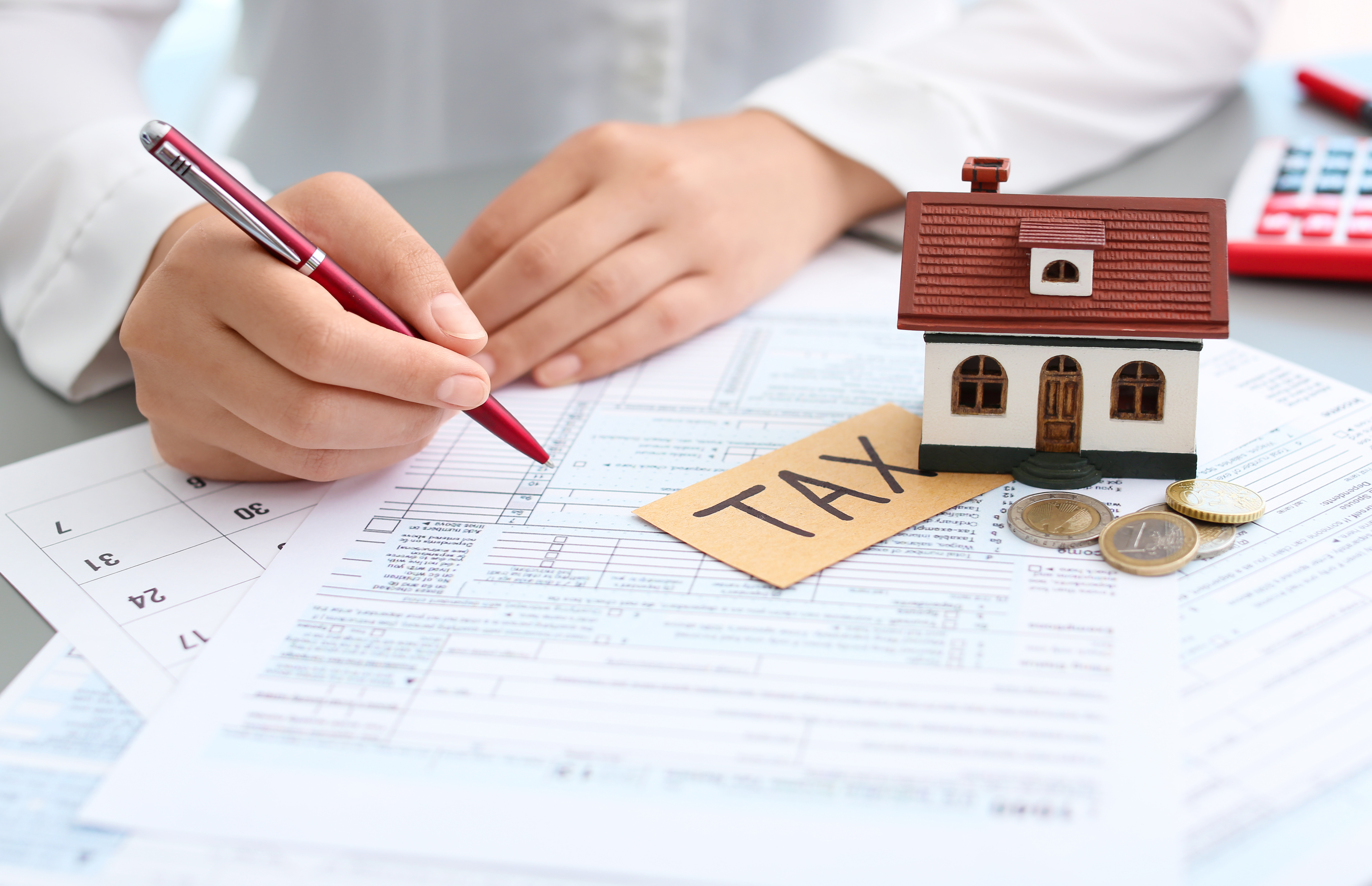To remove a car from property tax, contact your local tax assessor’s office and provide the necessary documentation for exemption or adjustment. Be prepared to provide proof of disposal or transfer of ownership of the vehicle.
Removing a car from property tax requires following specific procedures, which may vary by location. This process usually involves contacting the local tax assessor’s office and providing appropriate documentation to substantiate the vehicle’s removal from the tax inventory. By ensuring compliance with these requirements, you can successfully eliminate the tax liability associated with the vehicle.
Understanding the steps involved in this process helps individuals effectively navigate the necessary procedures and achieve a favorable outcome. This guide provides insight into the steps needed to remove a car from property tax and offers pointers for a smooth and efficient procedure.
:max_bytes(150000):strip_icc()/7-mistakes-avoid-when-buying-used-car.asp-V1-dbc23496b5164854a581f89b4683a5b5.jpg)
Credit: www.investopedia.com
Understanding Car Property Tax
What Is Car Property Tax?
Car property tax is a tax levied on the value of your vehicle by a local jurisdiction, typically at the county or city level. It is a recurring tax that vehicle owners must pay to the relevant tax authority.
How Is Car Property Tax Calculated?
Car property tax is usually calculated based on the assessed value of the vehicle, which can vary depending on factors such as the make, model, age, and condition of the car. The tax rate is then applied to this assessed value to determine the amount owed.

Credit: turbotax.intuit.com
Advantages Of Eliminating Car Property Tax
Removing car property tax can bring various benefits to car owners and the community at large. In this section, we will explore the advantages of eliminating this tax and how it can positively impact individuals and the economy.
Saving Money Annually
By eliminating car property tax, individuals can save a significant amount of money every year. This saving can be utilized for other essential expenses or contribute to long-term savings. In addition, the removal of this tax can alleviate financial strain on car owners, particularly those with multiple vehicles.
Reducing The Financial Burden On Car Owners
The abolition of car property tax eases the financial burden on car owners, especially those with limited income. This reduction in financial pressure allows individuals to allocate their resources towards vehicle maintenance, insurance, and other necessary expenses. Furthermore, it promotes equitable access to car ownership, fostering mobility and economic growth.
Expert Tips To Eliminate Car Property Tax
Do you dread paying your annual car property tax? Well, you’re in luck! With these expert tips, you can find ways to remove or reduce the burden of car property tax. From taking advantage of vehicle exemptions to registering your car as a classic or antique, there are several strategies you can employ to save money. Let’s delve into the details.
Take Advantage Of Vehicle Exemptions
If you want to eliminate car property tax, one effective approach is to explore the various vehicle exemptions available in your area. These exemptions often apply to certain categories of vehicles, such as electric cars, hybrid vehicles, or even low-emission cars. By understanding the eligibility criteria and gatherings necessary documentation, you can make a strong case for exemption and bid farewell to car property tax.
Register Your Car As A Classic Or Antique
Another smart move to consider is registering your beloved car as a classic or antique, depending on its age and condition. This classification brings with it potential tax benefits as classic and antique cars are oftentimes considered to possess historical or cultural value. Check with your local motor vehicle department or governing body for the specific requirements and procedures to follow for this type of registration. By doing so, you might find yourself exempt from or paying reduced car property tax.
Qualify For Low-income Or Senior Citizen Exemptions
If you fall into the low-income bracket or are a senior citizen, you may be eligible for exemptions or assistance programs related to car property tax. Local authorities often offer specific exemptions or reduced tax rates to individuals who meet the income or age criteria. Research your local or state regulations to determine if you qualify for these exemptions and take advantage of the available benefits.
Negotiate With Local Authorities For Lower Assessments
Believe it or not, it is possible to negotiate with local authorities to lower the assessment value of your car, which directly affects the amount of property tax you have to pay. Gather supporting evidence such as maintenance records, receipts, and even appraisals, if necessary, to demonstrate a lower value compared to the assessed value. Present a well-prepared case highlighting the reasons for a reduced assessment, and you might just succeed in getting your property tax lowered.

Credit: www.hrblock.com
Considerations Before Eliminating Car Property Tax
When it comes to the subject of eliminating car property tax, several important considerations must be taken into account. Understanding the impact on local government revenue and the effect on local services and infrastructure is crucial before making any decision. Let’s delve deeper into these considerations below.
Impact On Local Government Revenue
The elimination of car property tax can have a significant impact on the revenue generated by local governments. Property tax is an essential source of income for municipalities, counties, and other local entities, providing funds for various public services such as schools, police, fire departments, and road maintenance.
By removing car property tax, there is a potential decrease in the revenue stream that these local governments heavily rely on. This could lead to budget shortfalls and a strain on their ability to provide essential services to the community. Finding alternative sources of revenue or adjusting budgets are viable alternatives, but they may not be able to compensate entirely for the loss of car property tax revenue.
Effect On Local Services And Infrastructure
Car property tax also plays a crucial role in funding local services and infrastructure projects. The revenue generated from this tax helps maintain and improve roads, bridges, and other transportation infrastructure within the jurisdiction. Eliminating this tax puts a strain on the ability of local governments to finance these necessary projects.
Moreover, the loss of revenue caused by removing car property tax can impact the quality and availability of other public services. Schools may face challenges in hiring qualified teachers, police departments might struggle to fund necessary equipment, and fire departments may have difficulty maintaining staffing levels. The elimination of car property tax can have a ripple effect on the overall well-being of the community.
In addition, an increased burden may be placed on residents. Without the revenue generated from car property tax, local governments may need to raise other taxes, such as property or sales tax, to make up for the shortfall. This can result in higher costs for individuals and families, potentially impacting their ability to afford other essential goods and services.
Frequently Asked Questions On How To Remove Car From Property Tax
How Can I Remove My Car From Property Tax?
To remove your car from property tax, you need to provide proof that it is no longer in your possession. This can be done by selling or transferring the car, notifying the DMV, and submitting the necessary paperwork. Make sure to follow the specific guidelines set by your local government.
What Happens If I Don’t Remove My Car From Property Tax?
If you don’t remove your car from property tax, you may still be responsible for paying the tax even if you no longer own the car. This can lead to unnecessary financial burdens. It’s important to properly remove your car to avoid any future tax liabilities.
Can I Remove My Car From Property Tax If It’s Not Drivable?
Yes, you can still remove your car from property tax even if it’s not drivable. As long as you no longer own the vehicle and can provide the necessary documentation, such as a bill of sale or transfer of ownership, you can successfully remove it from the property tax assessment.
Do I Have To Remove My Car From Property Tax If I Donate It?
In most cases, when you donate your car, the responsibility for property tax is transferred to the new owner. However, it’s important to inform the relevant authorities about the donation, provide the necessary paperwork, and follow the proper procedures to ensure a smooth transition and avoid any potential tax-related complications.
Conclusion
Removing your car from property tax can be a smart financial move. By following the steps outlined in this blog post, you can ensure that you are not paying unnecessary taxes on your vehicle. Remember to research your local tax laws and take advantage of any exemptions or deductions that may apply to your situation.
By taking action and staying informed, you can save money and have one less worry in your financial life.
